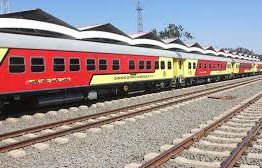
Kleptocracy is a form of corruption in which government officials use their positions to enrich themselves illegally. It is a major problem in Angola, where it has had a number of negative consequences for the country.
Economic consequences
Kleptocracy has had a significant impact on Angola’s economy. It has led to a decline in investment, as businesses are reluctant to invest in a country where they are at risk of being cheated by corrupt officials. It has also made it difficult for the government to raise revenue, as many of its resources are being siphoned off by corrupt officials. As a result, Angola has been struggling to recover from the oil price crash of 2014.
Social consequences
Kleptocracy has also had a number of negative social consequences for Angola. It has led to an increase in poverty and inequality, as the benefits of corruption are not shared with the wider population. It has also eroded trust in government institutions, as people see that their taxes are not being used to improve their lives. This has led to a decline in public participation in politics and a rise in apathy and cynicism.
Political consequences
Kleptocracy has also had a number of negative political consequences for Angola. It has led to a weakening of democratic institutions, as corrupt officials use their power to undermine the rule of law. It has also made it more difficult to hold the government accountable, as corrupt officials are often able to avoid punishment. This has led to a rise in authoritarianism, as the government seeks to crack down on dissent and maintain its grip on power.
International consequences
Kleptocracy has also had a number of negative international consequences for Angola. It has damaged the country’s reputation and made it difficult to attract foreign investment. It has also made it more difficult for Angola to cooperate with other countries, as they are wary of working with a government that is seen as corrupt.
Conclusion
Kleptocracy is a serious problem that has had a number of negative consequences for Angola. It has led to a decline in investment, an increase in poverty and inequality, a weakening of democratic institutions, and a rise in authoritarianism. The Angolan government needs to take serious steps to crack down on corruption in order to address these problems and improve the lives of its citizens.








